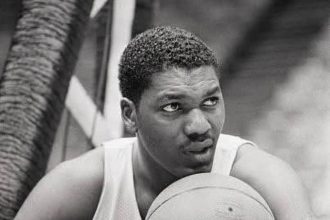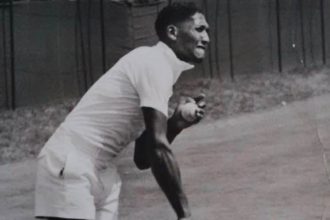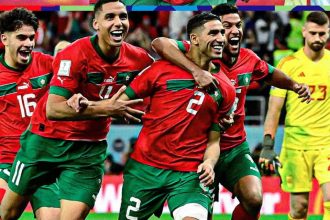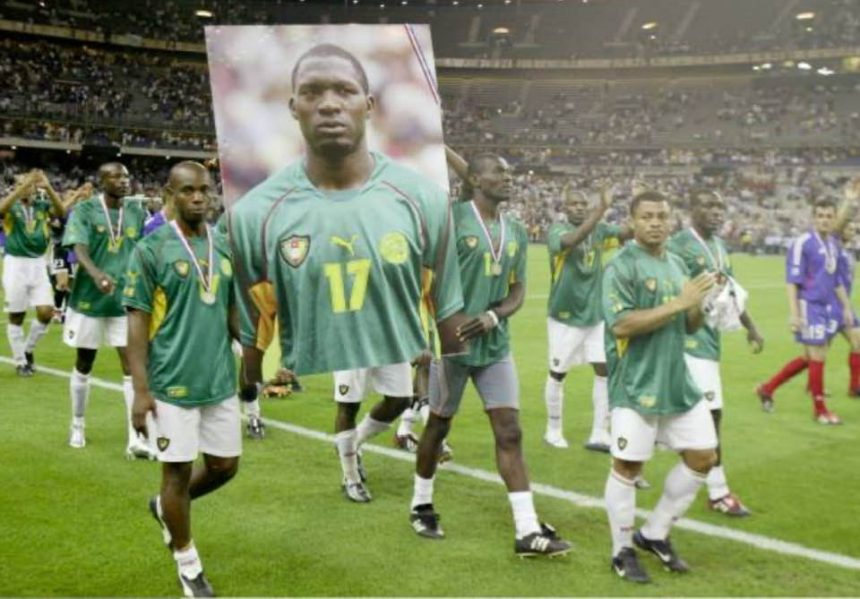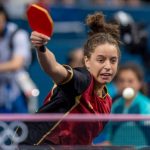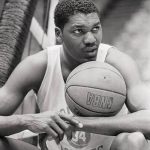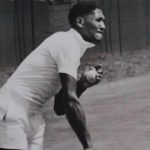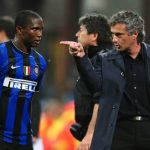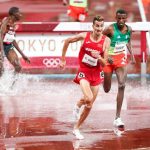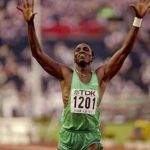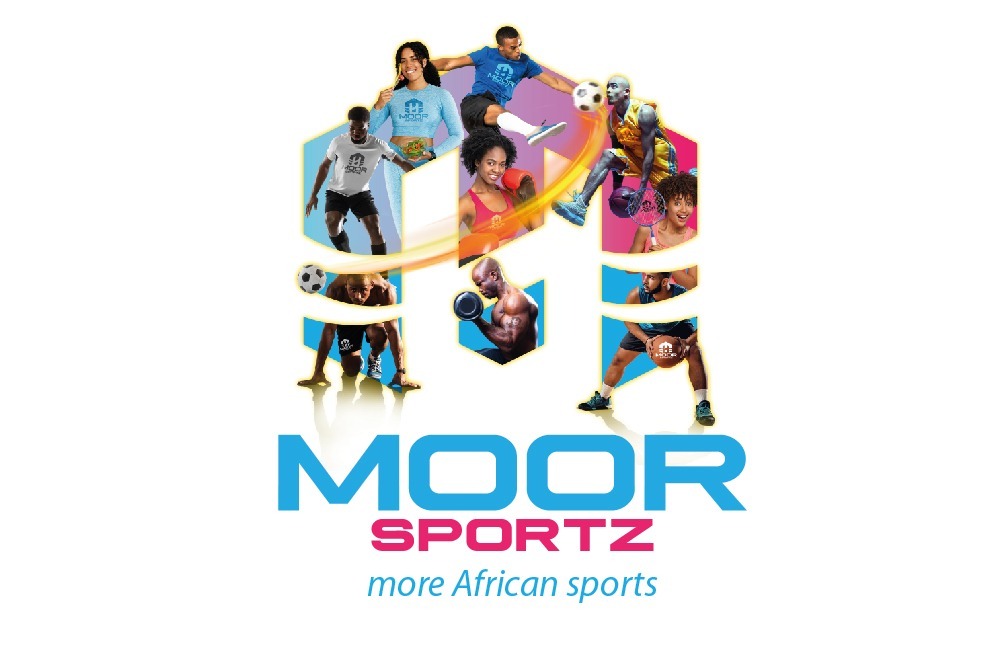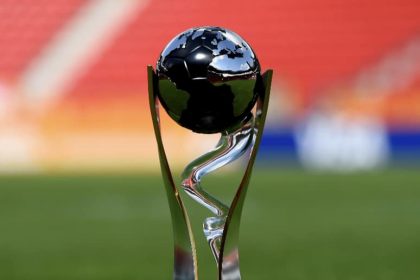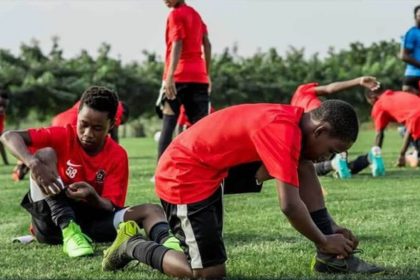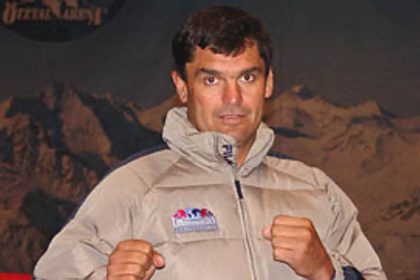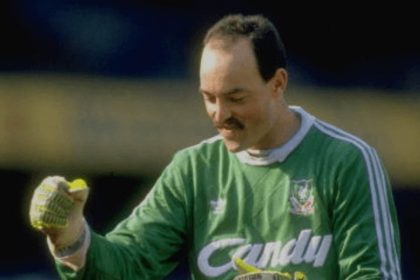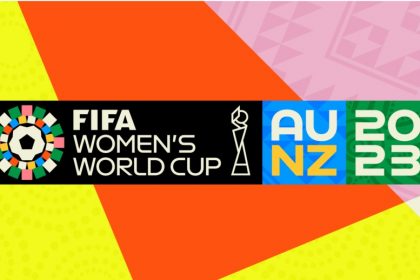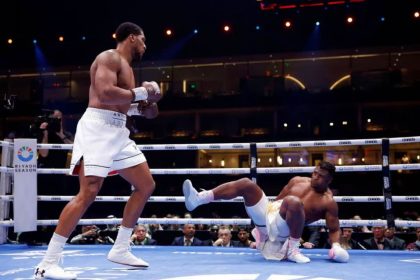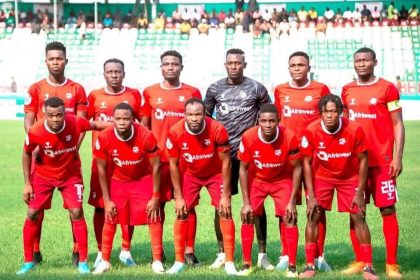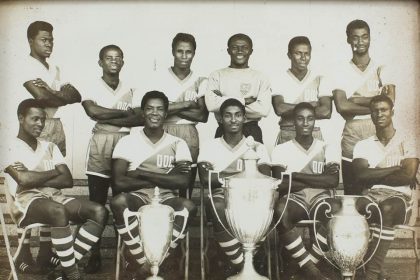Athletes, especially those who compete in sports involving physical strength, almost always stretch their bodies to the limits. Living with a chronic condition, however, can be difficult for any of these athletes. In recent years, several elite African athletes with serious health problems have been forced to take time off to attend to themselves in order to continue to compete. While some lucked out and were able to reach amazing heights in spite of their medical conditions, others were not so lucky but had their illustrious careers cut short, with a few others losing their lives while competing.
Sébastien Haller, a professional footballer, is a remarkable cancer survivor, an ailment, which threatened his career. The Ivory Coast international was diagnosed with testicular cancer shortly after joining Borussia Dortmund from Ajax Amsterdam in July 2022. The 30-year-old underwent two surgeries and chemotherapy in the ensuing months before returning to action just a year after in a dramatic recovery that stunned the sporting world. The Utrecht loanee scored the only goal of the semi-final match against the Democratic Republic of Congo that took the hosts to the final, after they were almost eliminated in the group stage of the 2023 AFCON. The former Auxerre striker was battling an ankle injury at the start of the tournament and missed the group games, where the Ivorians lost to Nigeria and had to rely on other results to avoid a shock AFCON group stage exit after Equatorial Guinea thrashed the Elephants 4-0 in a huge upset in Abidjan. Haller was also the hero in the final of the tournament where his goal was decisive in winning the Championship for his country for the third time in their history.
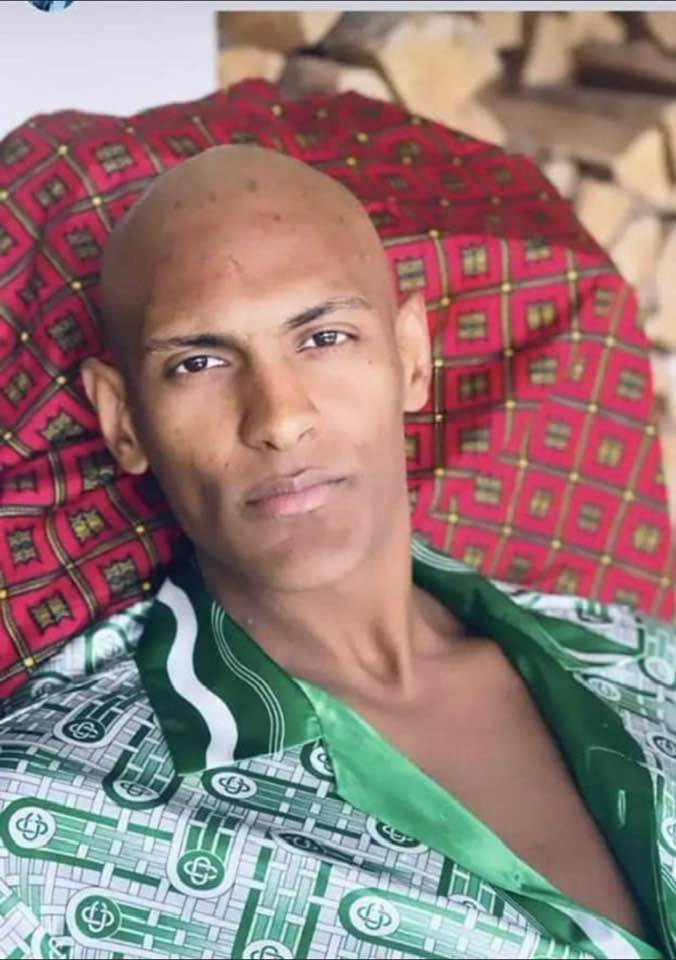

Retired Kenyan track and field athlete, Kipchoge Keino, won the 1500 metres gold medal by defeating American favourite and world record holder, Jim Ryun, by 20 metres, the largest winning margin in the history of the event at the 1968 Summer Olympics in Mexico City. Interestingly, Keino, a former Chairman of Kenyan Olympic Committee (KOC), accomplished the feat with a gall bladder ailment. Shaped by the experiences of his life’s journey, upon retiring from athletics, Keino turned his attention to another of his passions – philanthropy. Alongside his wife, Phyllis, Keino opened an orphanage in Kenya’s Rift Valley complete with quality medical facilities to support ailing children.
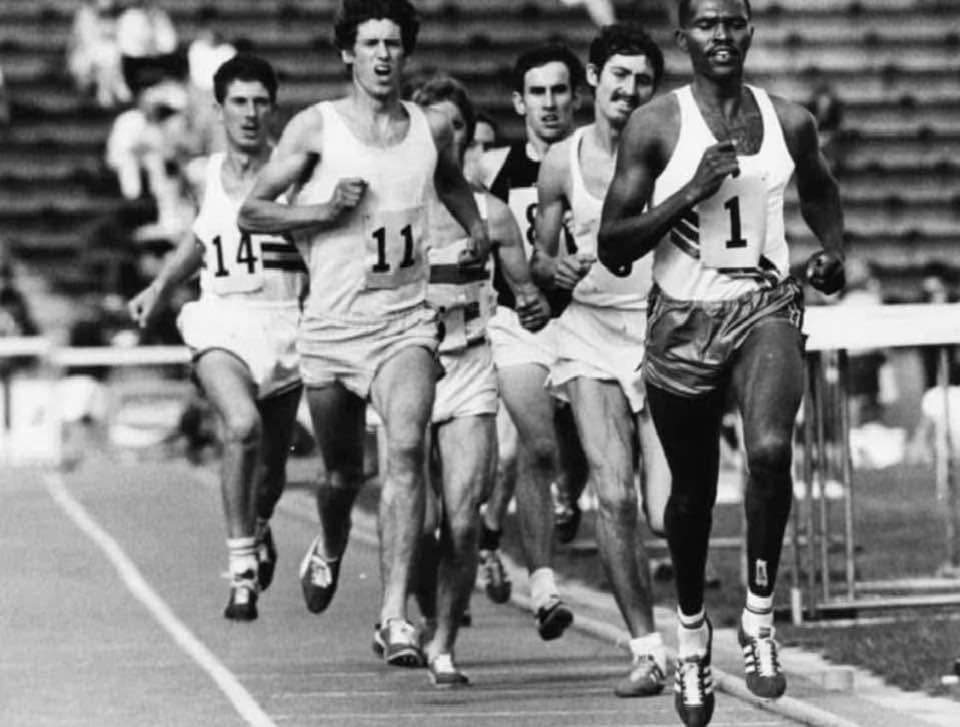
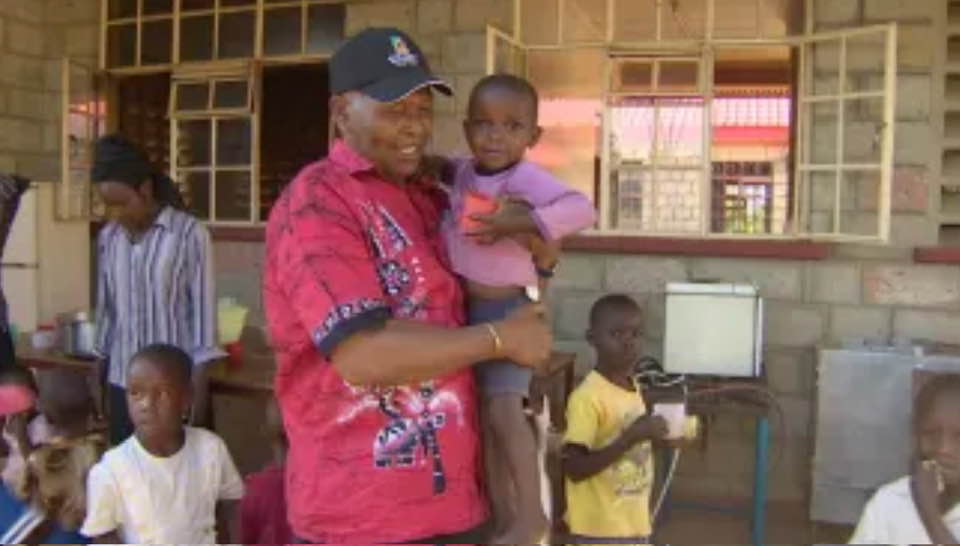
Ethiopian former long-distance track and road running athlete, Haile Gebrselassie’s asthma prevented him from completing the Berlin Marathon in September 2011. The four-time world and twice Olympic 10,000 metres champion was forced to retire from the race after 35 kms, suffering from exercise-induced asthma. The Olympic icon had earlier opted out of the marathon at the 2008 Beijing Olympics due to air pollution levels in the city, stating that running in such conditions might be harmful to his health. Gabrselassie later admitted that he regretted the decision as the Beijing air was cleaner than expected. This same seasonal condition had prevented the long-distance runner from participating at London’s annual springtime road race since 2007 up till this 2011 due to pollens. Gabrselassie’s condition is not unique among elite athletes as US’ sprinter, Noah Lyles, the fastest man on earth, is also reported to be asthmatic. Posters of Gabrselassie are still in many medical institutions all over Africa up till now as a signpost of hope and triumph to encourage asthma patients on the continent and around the world. He is certainly among the lucky ones to still live after pulling through such adversity as a top athlete.
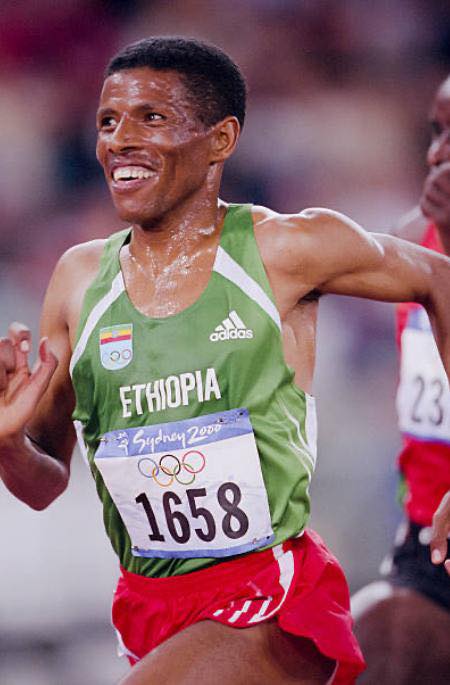
The story of the captain of the Nigerian “Dream Team” to the 1996 Summer Olympics in Atlanta is another interesting case. Nwankwo Kanu was born with a congenital heart defect which impeded his aortic valve from closing properly. Kanu’s world fell apart when he joined Inter Milan that summer from Ajax immediately after his heroics at the Olympics. The Nigeria international had not even played a game for his new club when the Nerazzurri’s team doctor, Bruno Caru, who led three other cardiologists, discovered the serious heart defect. The diagnosis was damning and Dr Caru declared; “With that heart Kanu would never play football again”.
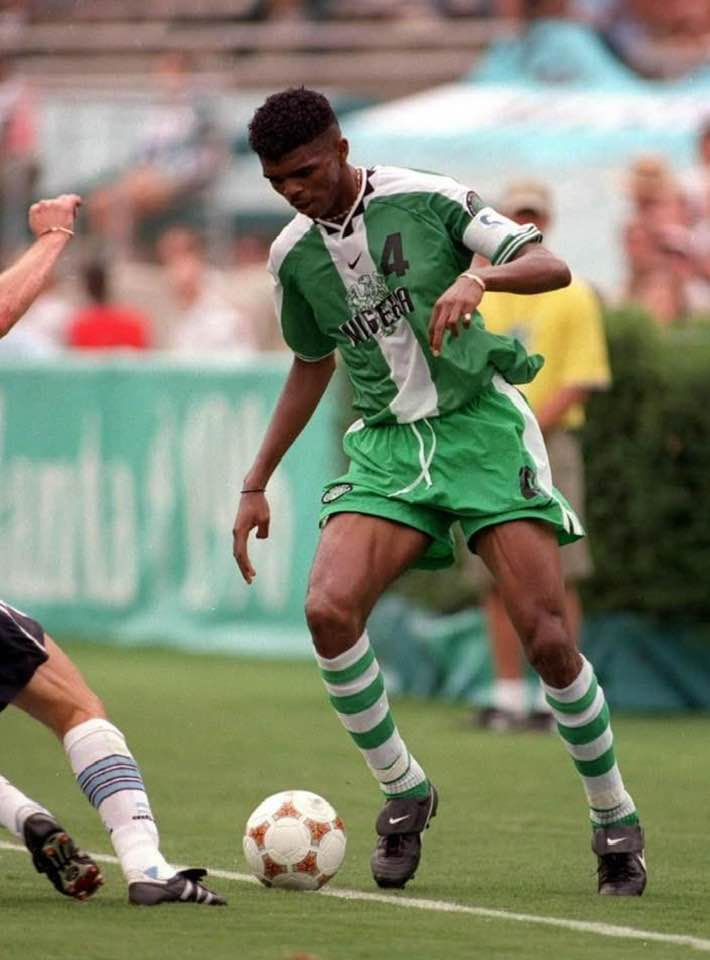
Inter Milan doctor Piero Volpi said: “The diagnosis is pitiless and has been confirmed by specialists. What we can’t understand is how no one discovered it before we did. It’s simply amazing, because we’re talking about a player who a month ago was playing in the Olympics”.
But against all odds, Kanu made a full recovery after the defect was operated on by specialists in America and even went ahead to win the African Footballer of the Year award in 1999 by virtue of his top performance in the highly demanding Premier League with Arsenal in the 1998-99 season. That was his second CAF award after the earlier one in 1996.
“I didn’t believe it because I’d just played in the Olympics in America where it was very hot. We won the tournament and I felt 100 per cent fit,” Kanu said.
The former West Bromwich Albion striker, in fact, had been at the very centre of Nigeria’s triumph, scoring the golden goal against Brazil in the semi-final, then captaining his country for the final victory over Argentina. Not long afterwards, the Kanu Heart Foundation idea was formed and this was quickly noised around Africa.
One story, in particular, stands out from the rest. “A little girl came with her mom to our hotel in Lagos,” Kanu explained. “They’d heard that we were about to launch the foundation and had been trying to get in touch with me. The girl was very sick and she fainted in the hotel. They rushed her to hospital and afterwards I was told what had happened. I promised her mom that, if we could raise the money, her daughter would be the first child we would help. We brought her back to London. She is better now.”
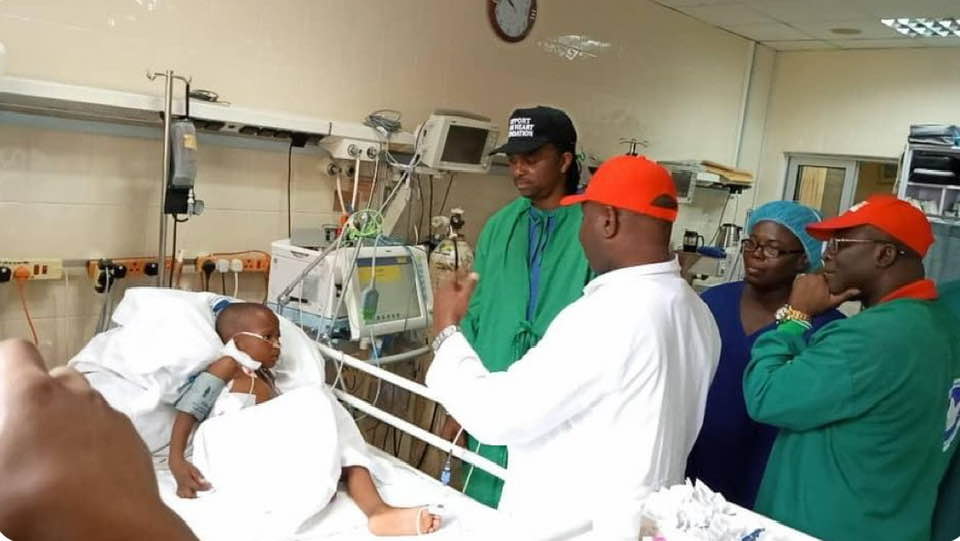
So far, the Kanu Heart Foundation has facilitated 538 successful operations in England, India, Nigeria and Israel where the costs are much cheaper at around £8,500 a time. “When they see you, they are so full of hope. Most of us can enjoy life. We have two arms and two legs and everything is great. When you go to see the kids in hospital you see the other side of life,” Kanu said.
Cameroonian professional footballer, Marc-Vivien Foé, was not as lucky as Kanu. On 26 June 2003, Foé died sudddenly during an international match for Cameroon, an event which shocked the football community worldwide. The death was later ruled to be due to hypertrophic cardiomyopathy. The hypertrophic cardiomyopathy suffered by Foé is a condition in which muscle tissues of the heart become thickened without an obvious cause. This results in the heart being less able to pump blood effectively and also may cause electrical conduction problems. Foé was capped 62 times by his nation and had scored 8 goals before his death. The defensive midfielder was posthumously decorated with the Commander of the National Order of Valour and had his shirt numbers 23 and 17 retired by Manchester City and Lens, respectively.
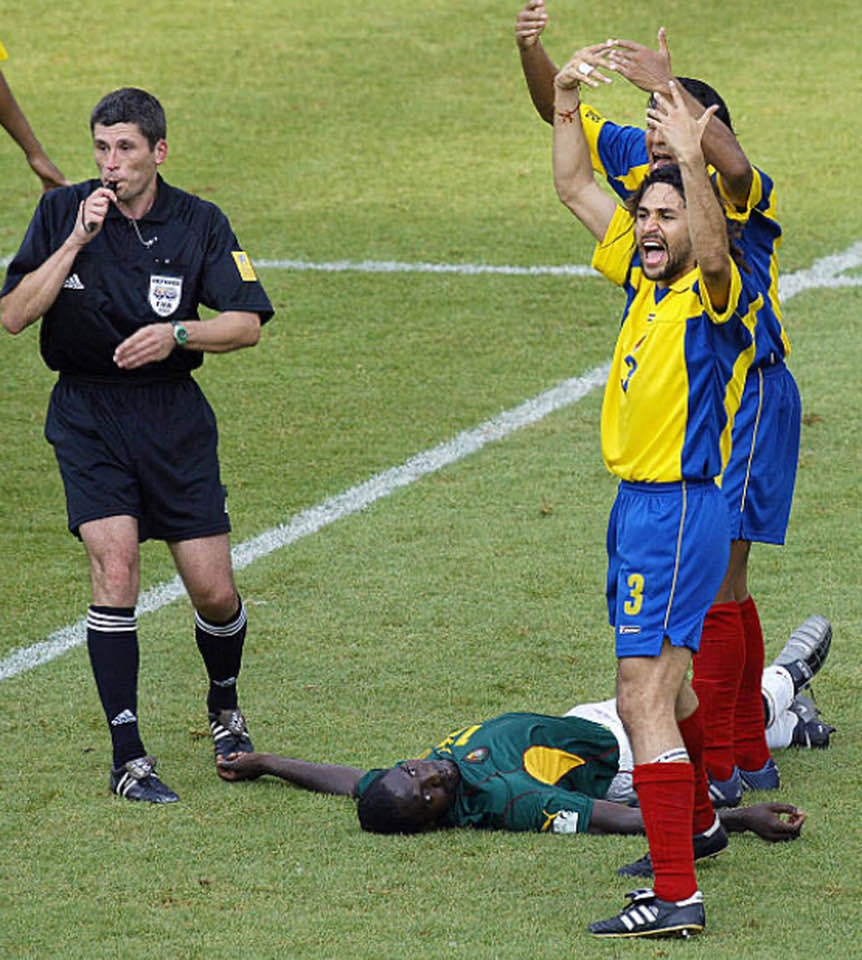
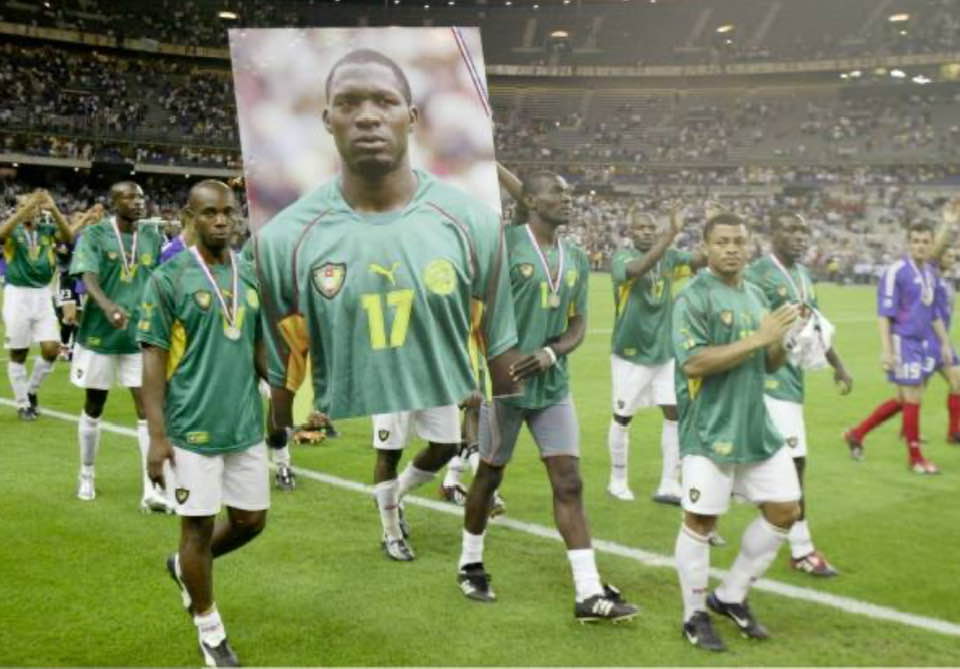
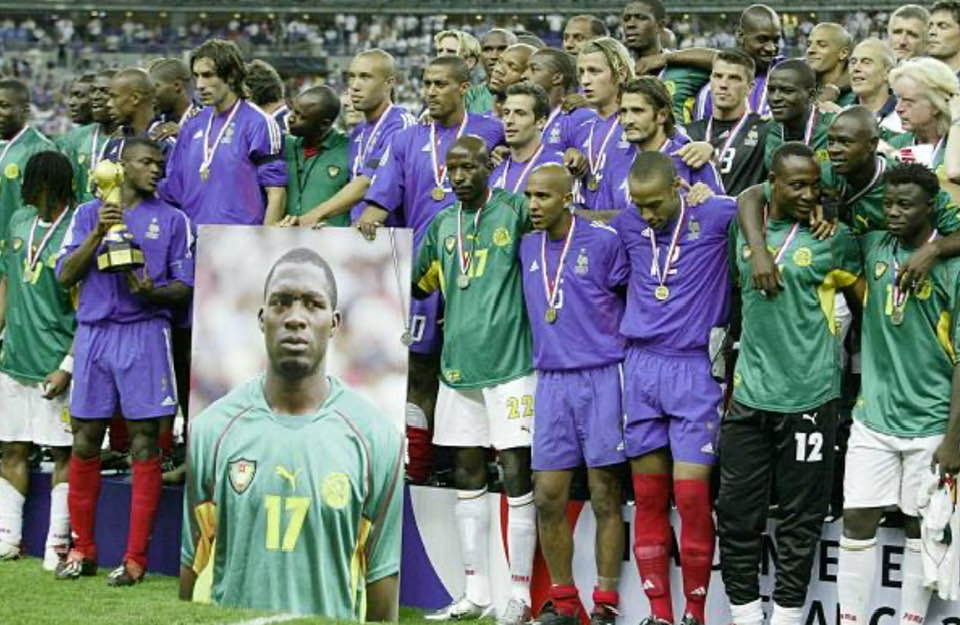
Another footballer, who died on the playing field, was Ivory Coast international, Cheick Tioté. The defensive midfielder died in Beijing, China, after suffering a cardiac arrest in training on 5 June 2017. The former Anderlecht, Twente and Newcastle United player was rushed immediately to hospital, but pronounced dead around an hour later. He left behind his wife Madah who was expecting their third child that week. On 13 June, Tioté’s memorial was held in Beijing, which was attended by his Beijing Enterprises Group teammates and Papiss Cissé, who had played with him at Newcastle.
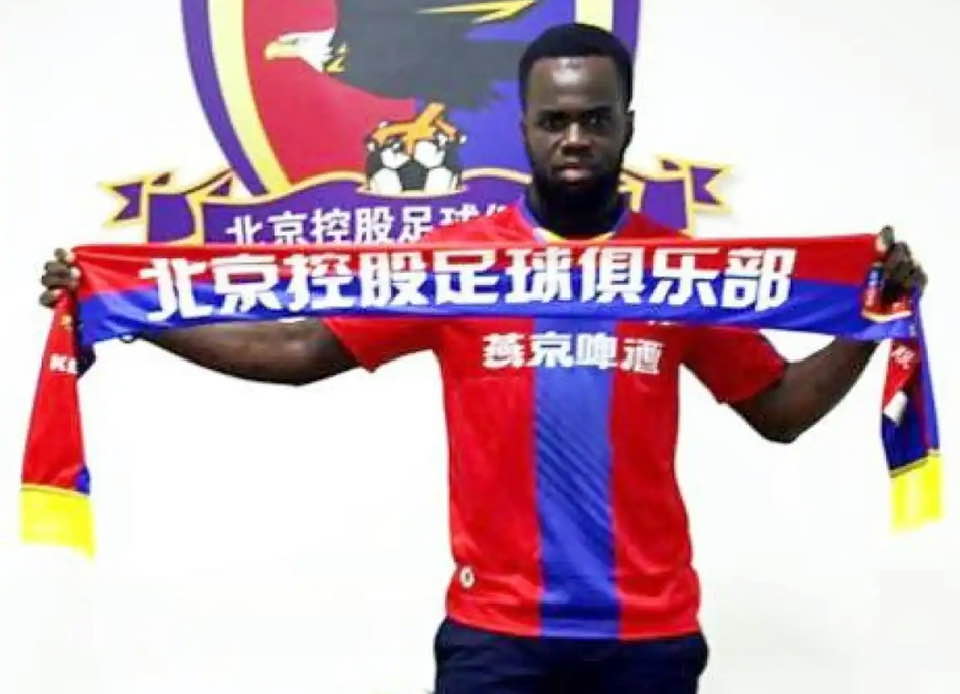
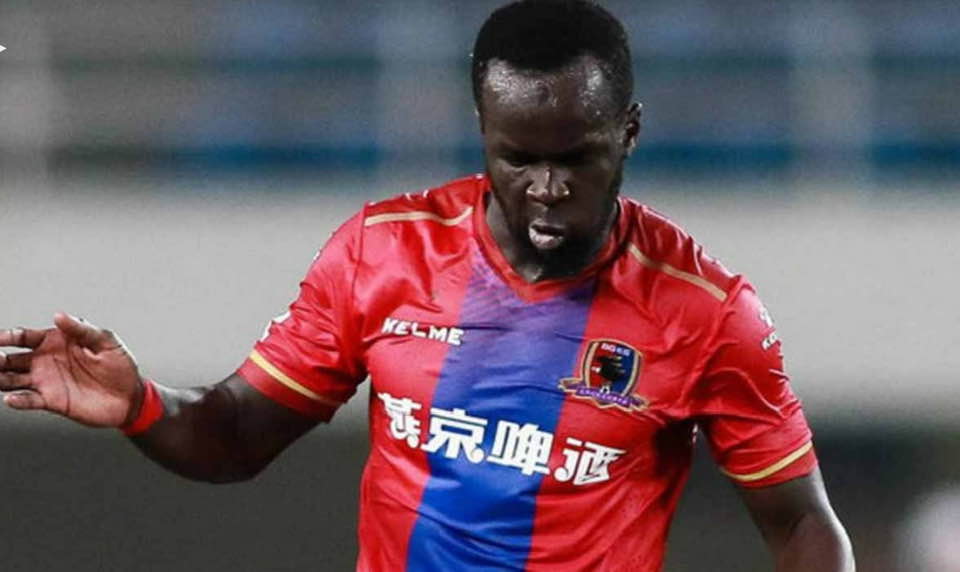
The story of the Ivorian Gabriel Tiacoh aka ‘Thunder thigh’, a 400 metres silver medalist at the 1984 Los Angeles Olympics, who was the first Olympic medal winner from any West African country was also so touching. Who knows how much more he would have achieved had tuberculous meningitis not denied Africa this gem? He succumbed to the cold hands of death in 1992 in Atlanta, Georgia at a tender age of 29. He’s clearly among the not so lucky ones.
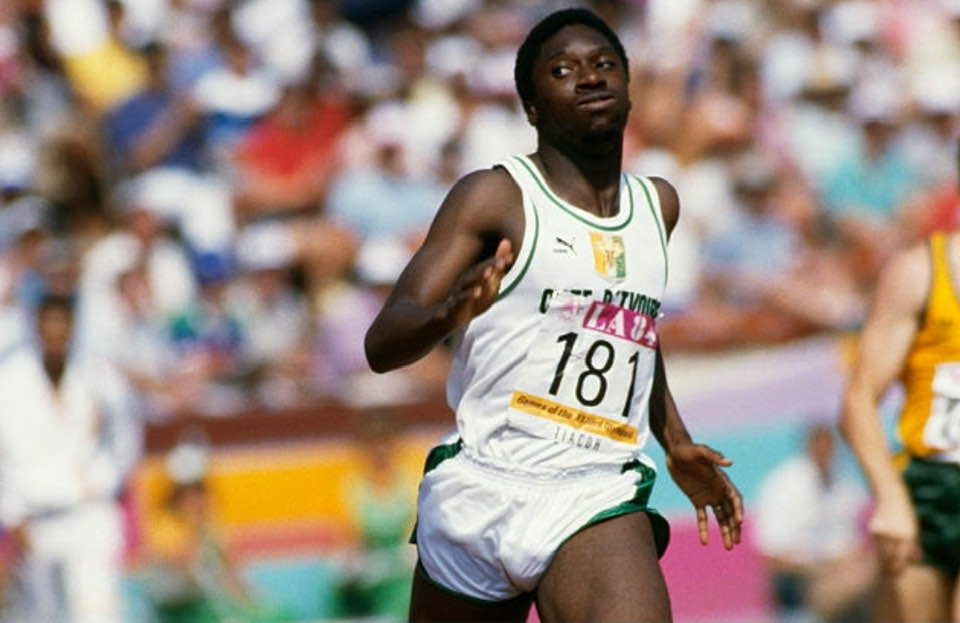
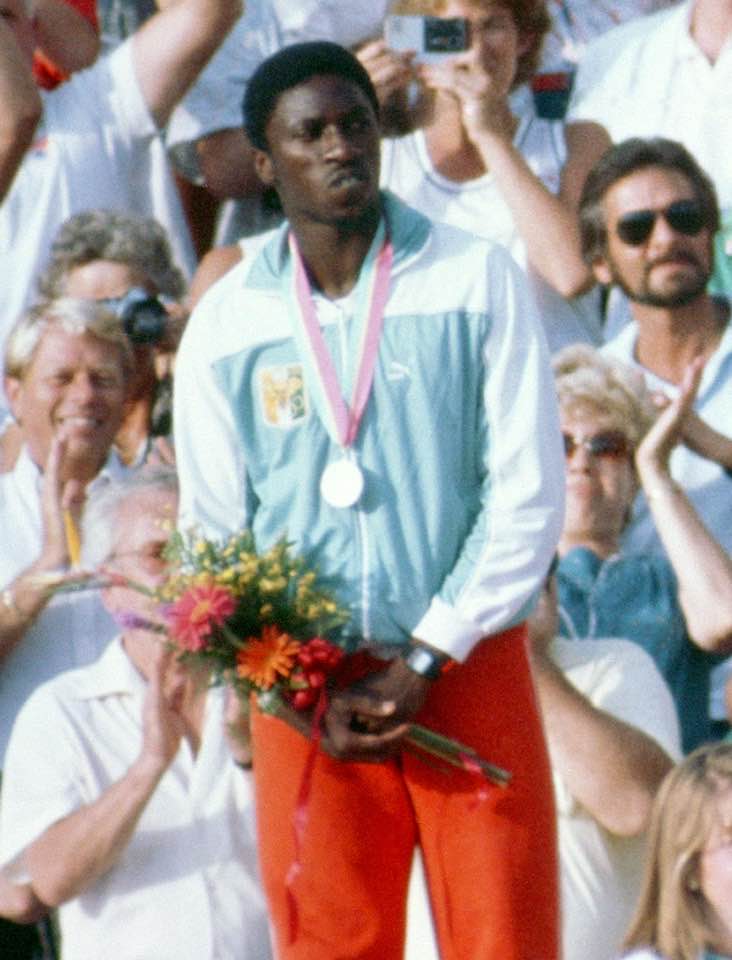
The boxing world is yet to recover from the tragic passing of former National and West African light heavyweight champion, Segun Olanrewaju, who died after collapsing during a fight in Ghana on 29 March 2025. Olanrewaju was competing against Ghanaian boxer, Jon Mbanugu, at Fight Night 15 of the Ghana Professional Boxing League at Bukom Boxing Arena when he suddenly lost consciousness. Reports indicated that Olanrewaju was ahead on points before the unfortunate incident occurred. The autopsy performed on the boxer revealed that Olanrewaju died from sudden cardiac arrest during the bout in Ghana.
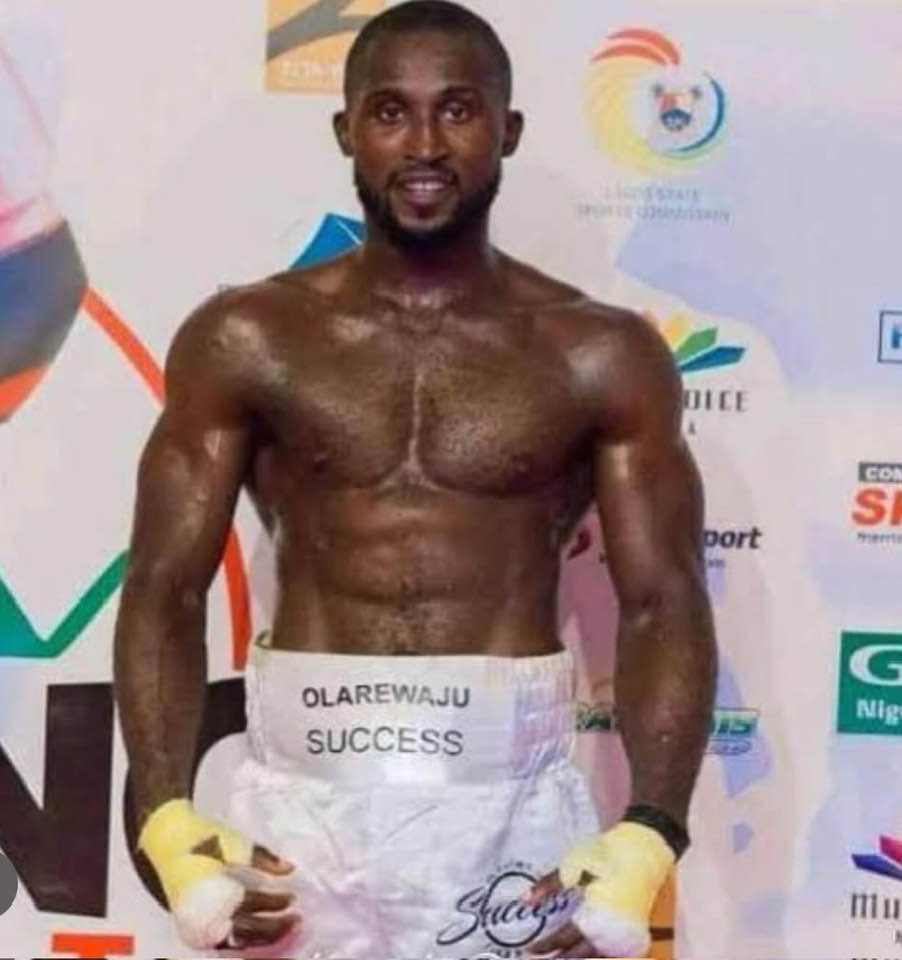
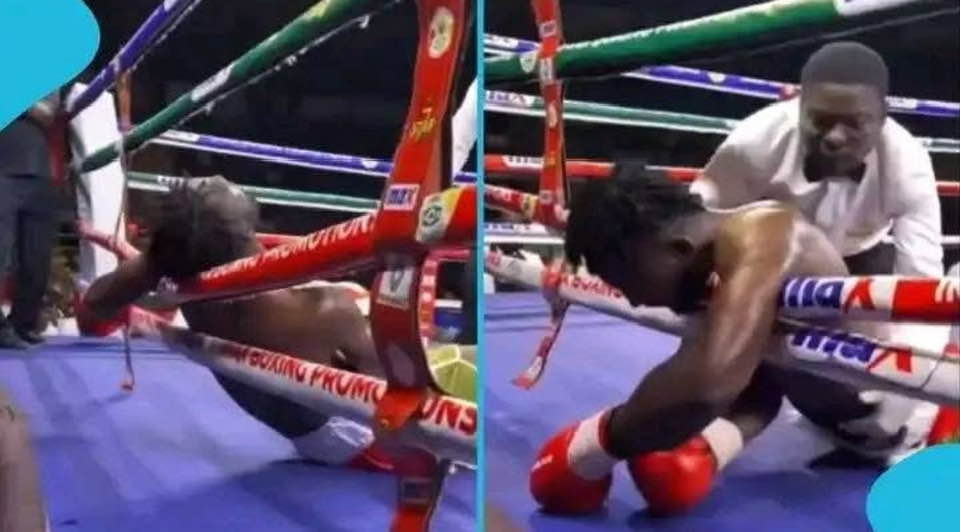
So many undetected medical cases still litter the landscape of African and global sports with complex combinations of factors preventing early detection and diagnosis. However, a majority of the athletes have successfully managed their medical conditions and continue to compete at the highest levels.
References:
- “The day Marc‑Vivien Foé died on the field’, in the words of Roger Milla”. By Manon Laplace for Africa Report. July 26, 2022
- “Legendary athlete Kip Keino goes extra mile for Kenyan youth”. By David McKenzie for CNN World. 13 December 2011.
- “Cheick Tiote dead aged 30 after former Newcastle midfielder collapses during training in Beijing”. By Darren Lewis, Assistant Editor Mirror. 05 June 2017.
- “State funeral for Foe”. BBC Sport. Martin Etonge 7 July 2003.
- “Kanu told he may never play again”. Editorial column of The Irish Times, 04 September 1996
- “Kanu all heart, on and off the pitch”. The Telegraph. Smith, Alan 18 March 2006.
- “Gebrselassie opts out of marathon”. London: BBC Sport. 10 March 2008.
- “Blue sky in Beijing makes Haile regret pulling out of marathon”. Indian Express. 19 August 2008.
- “The Bundesliga’s remarkable cancer survivors.” The Editorial page of the official Bundesliga newspaper, 21 November 2012.
- “Footballer Sébastien Haller Urges Men to Get Checked as He Reveals How He Overcame Testicular Cancer Diagnosis”. By Luke Chamberlain for Men’s Health Magazine. 16 February 2023.
- “Haller determined to have no regrets after overcoming cancer”. By Mark Gleeson, 10 February 2024
- “Autopsy confirms Olanrewaju died of cardiac arrest”. By Peter Akinbo for Nigerian Punch Newspaper. 5th April 2025.
- “Meeting Gabriel Tiacoh”. By Adolphe ANGOUA. 20 June 2018
Please follow this link to subscribe to Moor Sportz’ YouTube channel https://youtube.com/@moorsportz?si=piYRhM4z2zYMbGTF
Please note that we don’t have the copyright ownership of the pictures.
Story with contributions from Bimbo Ajayi
Text editing and proofreading by Dr Titi Alake


